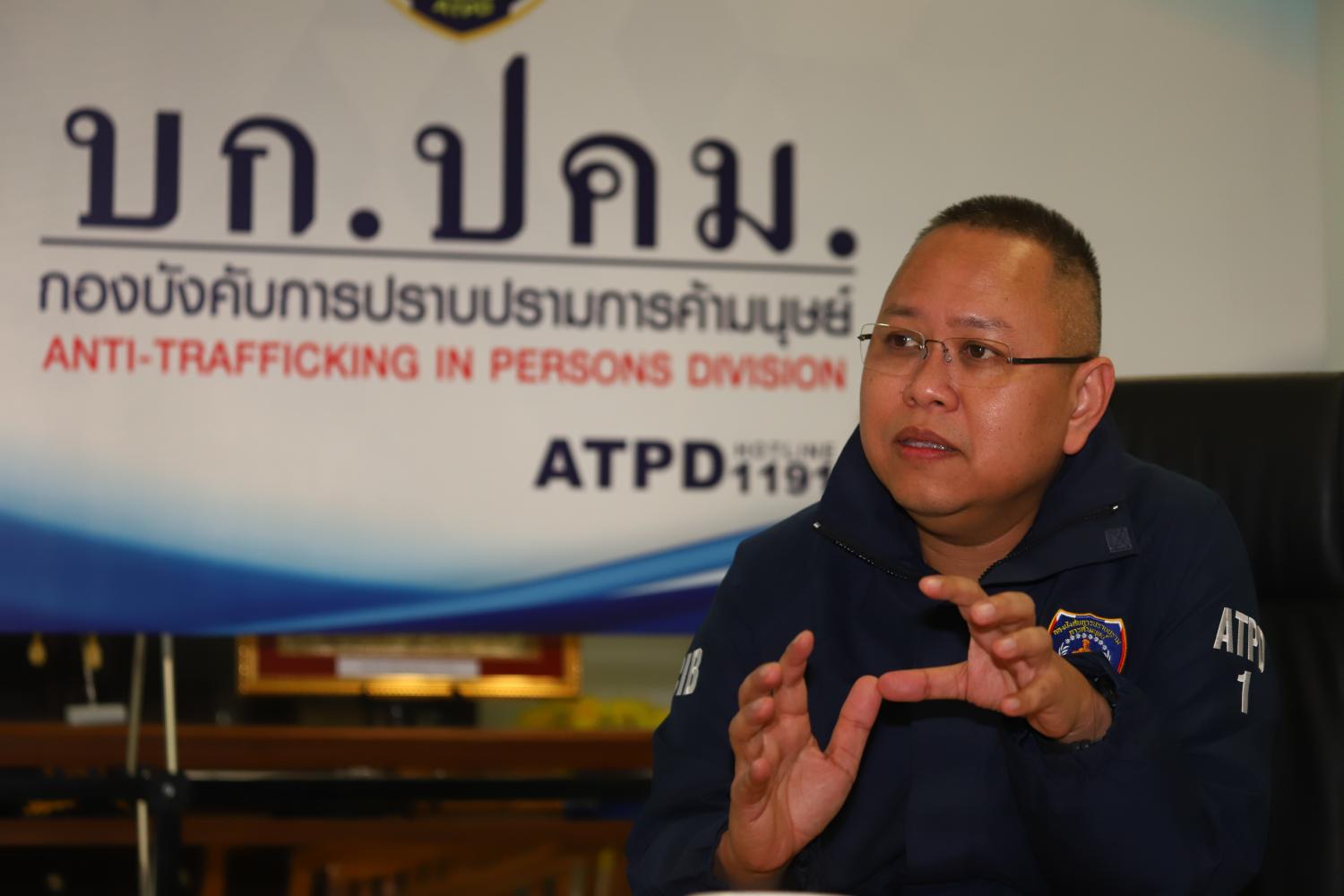
The Anti-Trafficking in Persons Division (ATPD) has set its sights on Tier 1 recognition in the US Trafficking in Persons Report, or TIP Report, ahead of the next review round.
At the helm of the ATPD is Pol Maj Gen Sarut Kwaengsopha, who has been asked by deputy national police chief Pol Gen Surachate Hakparn to oversee the improvement.
Pol Maj Gen Sarut is a son of Pol Gen Somsak Kwaengsopha, a former commissioner of the Border Patrol Police bureau, and he claims it was his father who inspired him to enrol at the Royal Police Cadet Academy.
Some of his former classmates, such as Pol Lt gen Santi Chainiramai, a police inspector-general serving in the Central Investigation Bureau (CIB), and Pol Maj Gen Rungroj Thankoonpunayasiri, a deputy commissioner of the Metropolitan Police Bureau, in charge of crowd control in Bangkok, began distinguished careers with the RTP, and Pol Maj Gen Sarut is no exception.
After an early 1995 stint with the border patrol unit in Bo Klue district of Nan, he was named assistant to the secretary of Pol Gen Kowit Watthana, then assistant national police chief, before his own appointment as national police chief in 2004.
Pol Maj Gen Sarut rose through the ranks, from a police major attached to the CIB, to chief inspector of tourist police in Bangkok where he later was promoted to police colonel in charge of strategic operations.
It did not take long before he was named deputy commander of the tourist police and was then given a sideways promotion to deputy commander of the Consumer Protection Police Division.
His big break came when he was given the rank of police major-general and made commander of the Technology Crime Suppression Division (TCSD), an agency he led for a year before taking charge at the ATPD.
Pol Maj Gen Sarut told the Bangkok Post that Pol Gen Surachate is currently in the US promoting Thailand's achievements in fighting trafficking with the latest review due in April.
Currently, only two Asean nations, the Philippines and Singapore, are in Tier 1.
Last year, there were 248 human trafficking-related cases, of which 228 were supervised by the ATPD, according to Pol Maj Gen Sarut.
Of the total cases, 203 involved sexual exploitation, most of which involved children.
The ATPD is focusing on online channels and social media platforms such as Line and Twitter in efforts to identify and rescue victims.
"It's a challenging task to identify those who live off human trafficking and prostitution rings," he said.
"Human trafficking offences in Thailand and indeed the wider world, which subsided during the Covid-19 pandemic, are now on the rise again.
"There is also always big demand for job opportunities overseas, which exposes job seekers to the risk of being scammed, or tricked into sex work," Pol Maj Gen Sarut said.
The ATPD chief warned that punishment for trafficking humans is severe, yet police still arrest producers and distributors of pornographic material. Some specialise in live-streamed sex and collect fees from members of websites.
"These are human trafficking crimes because they exploit children," he said.
He added the post-pandemic reopening of the border could see a resurgence of child beggars. Youngsters from neighbouring countries could end up being used to beg on the streets.
At the same time, the police have worked with the Ministry of Social Development and Human Security (MSDHS) on the payment of compensation to trafficking victims.
He said that trafficking suppression and compensation for victims must go hand in hand, if the government is to deal with the problem.
"We're confident we'll get to Tier 1," he said.
Pol Maj Gen Sarut also said human trafficking suppression work has been standardised and brought to international level through authorities' adoption of the National Referral Mechanism (NRM).
Set up in 2009, the NRM is designed to enable anti-trafficking agencies to get help and protection to victims and share information related to human trafficking or forced labour.
It is seen as an essential early step in dealing with the problem. The mechanism was endorsed by the national committee on human trafficking chaired by Deputy Prime Minister Prawit Wongsuwon.
In practice, the NRM deals with receiving alerts about trafficking incidents via hotlines or other channels. This forms the front-line process.
Then, authorities, including the MSDHS, the Interior Ministry and the Labour Ministry and the police screen potential victims in trafficking cases. Victims are given help through protocols.
The screening usually takes up to 15 days before victims are given a further period to recover from their ordeal or sometimes repatriation from countries where they had been duped to work.
This period frees the victims to gather their memories of events, which is useful for the investigation, he said.
"If we bring them for investigation straight away, the victims might not have a full recollection of what happened to them," Pol Maj Sarut said, adding if the victims are foreign nationals, the immigration police also participate.
The ATPD commander added the ATPD is open to working with non-governmental organisations to stamp out human trafficking.





.jpg?w=600)

